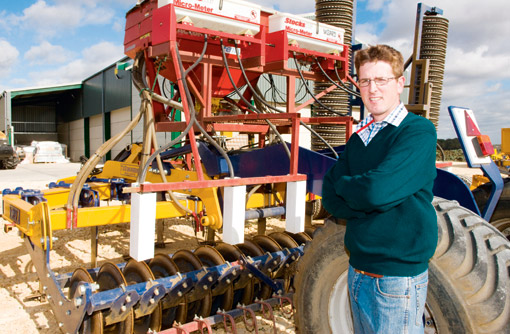Drilling doubts as blackgrass and slugs reign

A real man admits his failings
I have always feared being caught with my pants down, yet always hoped if it should happen, I would be in a state of undress, smoking a huge Havana cigar and lying next to a pneumatic Keira Knightley.
Unfortunately, nothing could be further from the truth. The slugs and the wet weather have shown that heavy land needs drilling in the dry. I am now convinced delayed drilling is a myth peddled by land drainage contractors on the hunt for more work.
Direct drilled land is travelling well, but the discs are struggling to penetrate the trash on the cheesy soil and the combine wheelings are going to be seen all year I fear. Land which was cultivated to allow a seven week stale seed-bed, where incidentally nothing venomous grew, has drilled beautifully. That was until the rain and I now have seed covered by two inches of clay slurry and can’t get a sprayer anywhere near the field for its pre-emergence.
My troubles do not stop there. My oilseed rape is nothing short of a disaster on the heaviest fields. A mixture of slugs, snails, masses of chopped straw, dry and then wet conditions, and pathetically small seed with matching amounts of vigour means that my plant populations are poor. The blackgrass has more true leaves than the rape, so the silver lining to this cloud is that it should allow a good platform to control the blackgrass with either spring beans or fallow taking the place of the OSR.
I am told that it takes a real man to admit his failings and to learn from his mistakes. I can therefore surmise that I have more testosterone coursing through my veins than Felix Baumgartner, although I unfortunately do suffer from vertigo on anything higher than the drill steps!
Will Howe farms 384ha of medium to heavy land at Ewerby Thorpe Farm, near Sleaford, Lincolnshire, growing wheat, oilseed rape and winter beans

